George Floyd murder trial: Jury reaches verdict
The jury has reached a verdict in the trial of the former police officer Derek Chauvin who is charged with killing George Floyd.

The jury has reached a verdict in the trial of Derek Chauvin, the white former police officer charged with murder and manslaughter for the death of African-American George Floyd.
The verdict will be read in court at 3:30pm Central Time, or 6.30am AEST.
Chauvin is accused of murdering George Floyd, who died in Minneapolis last year after a run-in with police. Chauvin was filmed kneeling on his neck and back for nine minutes and 29 seconds, a position he maintained despite Mr Floyd’s pleas that he couldn’t breathe.
The former officer has been charged with three offences, the most serious of which is second degree unintentional felony murder, which carries a maximum sentence of 40 years in prison.
Chauvin is also charged with third degree murder, which requires proof that he caused Mr Floyd’s death through an “eminently dangerous” act “without regard for human life”. The highest possible sentence for this is 25 years.
The third charge is manslaughter, with a maximum sentence of 10 years.
RELATED: Footage causes Floyd witness to break down
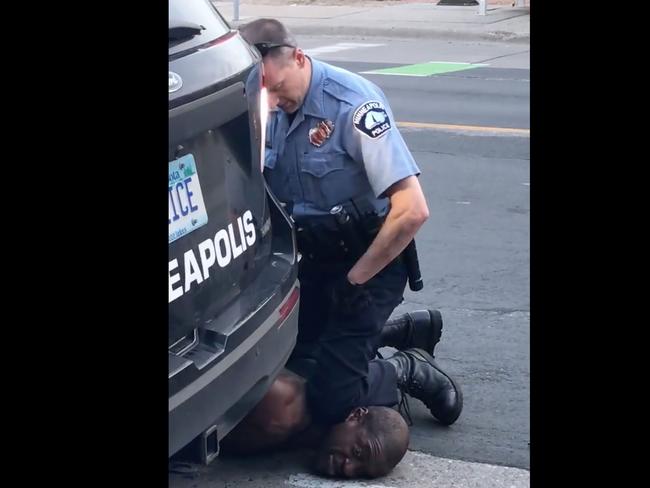
MOVE FOR A MISTRIAL
Minutes after the jury retired to deliberate this afternoon, defence lawyer Eric Nelson moved for a mistrial, citing public remarks from Democratic Congresswoman Maxine Waters over the weekend which he said were prejudicial to the case.
Ms Waters was in Minneapolis on Saturday, where she spoke about the Chauvin trial.
“We’ve got to get justice in this country, and we cannot allow these killings to continue,” Ms Waters said.
“We’ve got to stay on the street and we’ve got to get more active, we’ve got to get more confrontational. We’ve got to make sure that they know that we mean business.
“I hope we’re going to get a verdict that will say guilty, guilty, guilty. And if we don’t, we cannot go away.”
Mr Nelson told Judge Peter Cahill her comments could be “reasonably interpreted” as “threats against the jury process”.
Judge Cahill denied the motion for a mistrial, saying he did not believe Ms Waters’ remarks would prejudice the jury as they had been instructed not to watch the news.
However, he made his displeasure with the politician clear.
“I’m aware that Congresswoman Waters was talking specifically about this trial, and about the unacceptability of anything other than a murder conviction, and talk about being confrontational,” he said.
“This goes back to what I’ve been saying from the beginning. I wish elected officials would stop talking about this case. Especially in a manner which is disrespectful to the rule of law, and to the judicial branch and our function as a coequal branch of government.
“Their failure to do so I think is abhorrent, but I don’t think it prejudices with additional material that would prejudice this jury. They have been told not to watch the news, I trust they are following those instructions, and that there is not in any way a prejudice to the defendant.
“A Congresswoman’s opinion really doesn’t matter a whole lot.”
He conceded Ms Waters “may have given you something that will allow this case to be overturned on appeal”, if Chauvin is convicted.
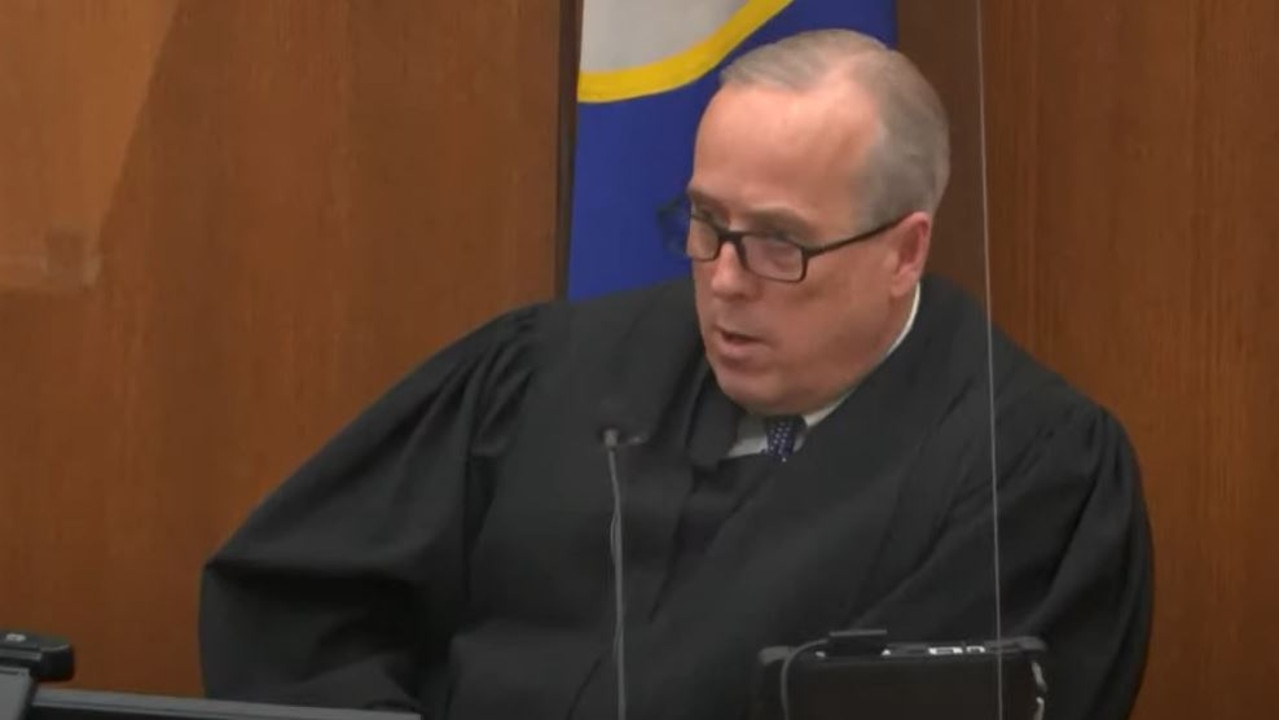
THE PROSECUTION
Earlier, in his closing, prosecutor Steve Schleicher told the members of the jury to use their “common sense”, calling several of the defence team’s arguments “nonsense”.
Specifically, he dismissed the theory that Mr Floyd died because of drugs in his system or because of carbon monoxide from the tailpipe of the police car.
“Use your common sense. Believe your eyes,” Mr Schleicher said.
“The state does not need to prove its case beyond all doubt, or beyond unreasonable doubt. An unreasonable doubt is a doubt not based on common sense, but on nonsense. You are not required to accept nonsense.”
The defence has argued there was enough fentanyl in Mr Floyd’s system to kill him. Mr Schleicher said Mr Floyd’s history of drug use meant he had developed a high level of resistance, citing expert testimony.
“The experts all agree that George Floyd did not die the way someone who dies from a Fentanyl overdose dies,” he said.
“This looked nothing like a Fentanyl overdose.”
Mr Schleicher ran through each of the charges against Chauvin and the threshold for a guilty verdict, stressing that the prosecution did not need to prove any intent to kill.
“If you commit a certain level of assault, a felony level assault, and a person dies as a result of your assault, you’re guilty of murder. It’s as simple as that,” he said.
“What the defendant did here was a straight up felony assault. This was not policing. It was unnecessary, it was gratuitous, it was disproportionate, and he did it on purpose.
“No question, this was not an accident. He did not trip and fall and find himself upon George Floyd’s neck. He did what he did on purpose, and it killed George Floyd.
“He betrayed the badge and everything it stood for.”

Mr Schleicher took issue with the defence’s claim that Mr Floyd was not complying with police when Chauvin held him down.
He went back to the start of the incident, when police found Mr Floyd sitting in a parked car. They had been called to deal with an allegation that Mr Floyd had paid for cigarettes with a counterfeit $20 note.
“Within seconds, (an officer) pulls his gun and holds it inches from George Floyd’s face, and starts shouting profanities. ‘Show me your f***ing hands.’ Screaming. This was within seconds,” said the prosecutor.
“They tell him to put his hands on the steering wheel, he does. That’s not resistance, that’s compliance. They tell him to get out of the car, he does. That’s not resistance, that’s compliance.
“George Floyd was not a threat to anyone. He was not trying to hurt anyone.”
A struggle ensued as police tried to put Mr Floyd in the back of a squad car, and he ended up on the ground.
“Here is on his knees, he is not going anywhere. There are four officers,” Mr Schleicher continued.
“The reasonable officer, at that time, should have recognised he wasn’t trying to escape. He wasn’t trying to punch anyone or stab anyone.
“It was over. He was on his knees. But what did they do? They took him from this position, handcuffed on his knees, they pushed him down on to the ground. For what?
“Was George Floyd resisting when he was trying to breathe? No.”
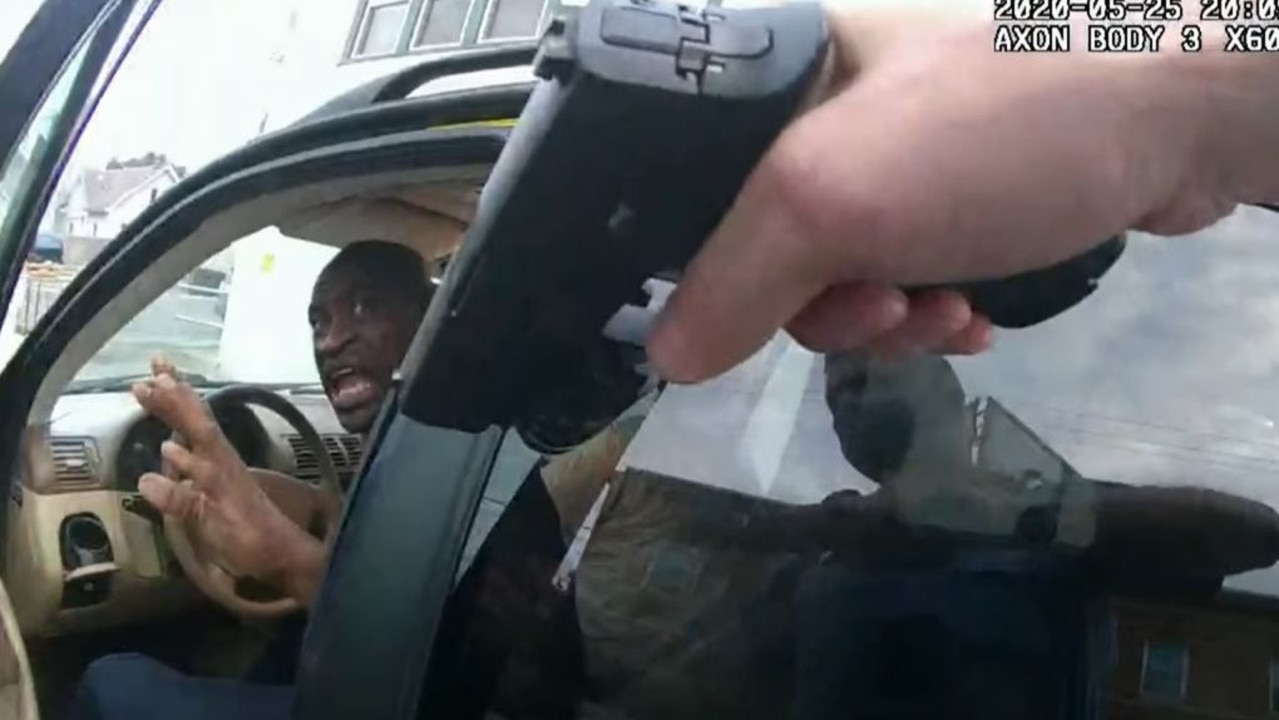
Summing up the prosecution’s case, he pointed out that Chauvin continued to hold Mr Floyd down with his knee even after another officer had found no pulse.
“How can you justify the continued force on this man when he has no pulse? No pulse. Continued the restraint, continued grinding, twisting, crushing the life out of him. Past the point of finding no pulse, past the point when the ambulance arrives,” he said.
“What’s the goal? What are we trying to accomplish? This was a counterfeit $20 bill, allegedly. What is going on? Why hold him that long, past that point? Unreasonable force. Unreasonable. Not proportional. Excessive. It violated policy, it violated the law, it violated everything the police department stood for.
“This was not a justified use of force. You cannot justify it. It’s impossible. Not if you apply the rules, not if you apply the standards officers swore to observe.
“This wasn’t policing. This was murder. The defendant is guilty of all three counts.”
Prosecutor Steve Schleicher calls policing a "noble profession" in closing statements.
— CBS News (@CBSNews) April 19, 2021
"This case is called State of Minnesota vs. Derek Chauvin — this case is not called the State of Minnesota vs. the police."https://t.co/XVWt2XWHZtpic.twitter.com/RMo5DOYncr
THE DEFENCE
The defence lawyer, Mr Nelson, spent much of his closing describing Chauvin’s actions as those of a “reasonable police officer”.
“The state has really focused on the nine minutes and 29 seconds. It’s not the proper analysis, because the nine minutes and 29 seconds ignores the previous 15 minutes and 59 seconds,” he said.
Mr Nelson said Chauvin had arrived on the scene to see “active resistance” from Mr Floyd, as officers tried to get him into the back of the car.
“The reasonable officer would look at the size of the person and assess that person’s size in relation to his own size. Because it’s a part of the risk-threat analysis,” said Mr Nelson.
“The reasonable officer would know that these are two rookies putting this man in the car.”
He suggested a reasonable officer would be sceptical of Mr Floyd’s claims that he could not breathe because suspects often “feign” medical distress in their efforts to avoid arrest.
“He’s going to compare those words to the actions of the individual. If my behaviour is inconsistent with what I am saying, the reasonable officer takes that into consideration,” said Mr Nelson.
“The amount of force being used by the other officers was insufficient, was not enough force, to overcome Mr Floyd’s resistance, to get him into the car.
“A reasonable police officer would understand this situation, that Mr Floyd was able to overcome the efforts of three police officers, while handcuffed.
“Not a single use of force expert that testified, not a single police officer, said that anything up to this point was unlawful or unreasonable.”
He argued that Mr Floyd’s protestations while he was on the ground were proof that he was, in fact, able to breathe.
“It takes a lot of oxygen to talk. You’re breathing fine if you can talk,” the lawyer claimed.
During closing arguments, Eric Nelson, the defense lawyer, says it is "not uncommon for suspects to feign, or pretend to have, a medical emergency to avoid being arrested. Unfortunately, that is the reality.†pic.twitter.com/waQ92vDn6m
— CBS News (@CBSNews) April 19, 2021
A recurring argument from the defence throughout the trial has been the role the crowd of bystanders played in the incident.
This featured again during Mr Nelson’s closing, as he came to the most “critical moment” in the case – the moment Mr Floyd took his last breath. He said Chauvin was distracted by the crowd at that point.
“You see Officer Chauvin’s reaction to the crowd is to pull his mace and shake it. He’s threatening the use of force, as is permitted,” he recounted as footage played for the jury.
“And (firefighter) Genevieve Hansen walks in at that time, startling him. All of these facts simultaneously occur at a critical moment. And that changed Officer Chauvin’s perception of what was happening.
“After this point, the crowd grows louder and louder.”
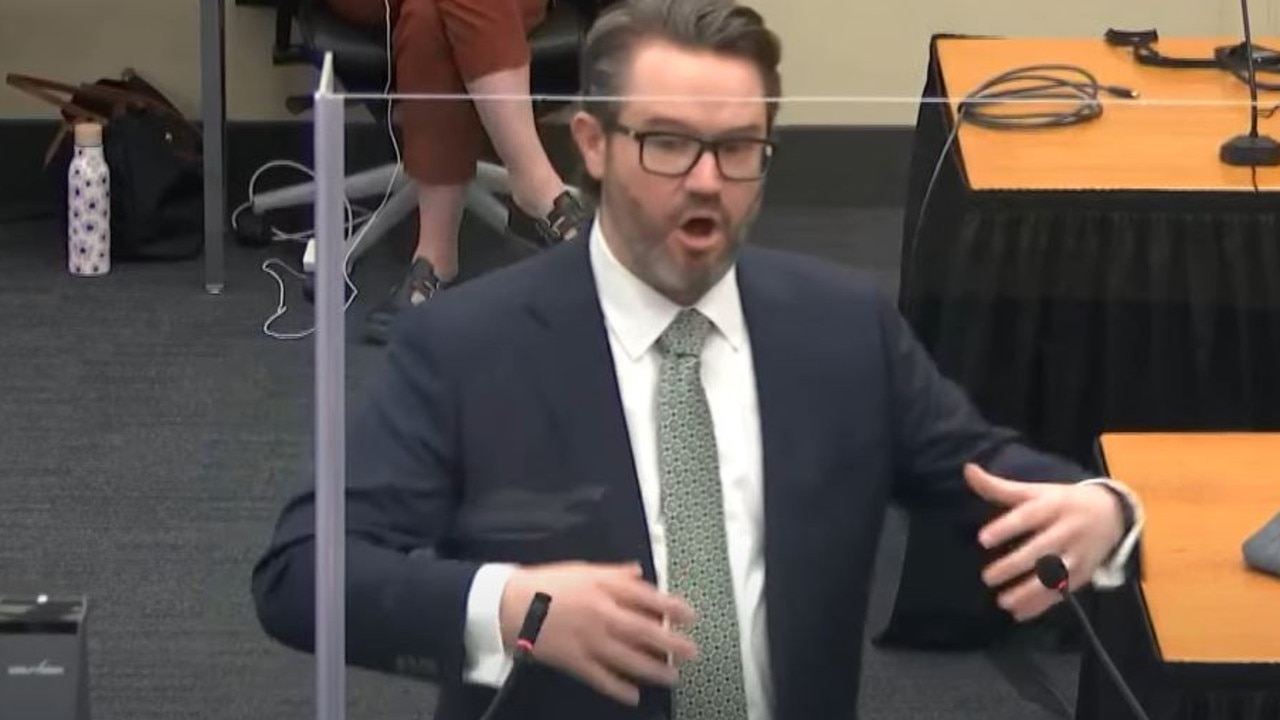
Mr Nelson said the position Mr Floyd was in throughout the nine minutes and 29 seconds – known as the “prone position” – was “not eminently dangerous”.
“People sleep in the prone position, suntan in the prone position, get massages in the prone position,” he said.
Finally, he addressed the medical evidence, telling the jurors the prosecution was asking them to disregard potential alternative explanations for Mr Floyd’s death.
“I have to address the cause of death,” he said.
“You have to be convinced that the defendant’s actions caused the death of Mr Floyd. And throughout the course of this trial, the state has tried – called numerous witnesses – to try to convince you that asphyxiation is the singular cause of death.
“They’re trying to convince you that Mr Floyd’s heart disease played no role in this case. The state must try to convince you that Mr Floyd’s history of hypertension played absolutely no role. That Mr Floyd’s toxicology played no role in his death.
“The state would have to convince you, beyond a reasonable doubt, that a combination of these pre-existing issues did not contribute to Mr Floyd’s death.
“If any of these other factors are substantial contributing factors, because they were not the natural result of the restraint – it’s the natural consequence of the deceased’s actions.
“I submit to you that the testimonies of (the experts) flies in the absolute face of reasoning and common sense. It’s astounding.
“They just want you to ignore significant medical issues.”
He said the medical examiner Dr Andrew Baker, in his autopsy, found no evidence of injuries to the neck consistent with the theory that Mr Floyd died from asphyxiation caused by Chauvin’s knee.
“The fact that he found this to be a homicide is a medical term,” he stressed, saying the conclusion did not imply “criminal intent” from Chauvin.
And Mr Nelson was heavily critical of the medical experts offered up by the prosecution, saying they ignored the influence of illicit substances in Mr Floyd’s system.
“It is a preposterous notion that this did not come into play here,” he said.
The defence lawyer argued the prosecution had called in so many outside experts because Dr Baker did not reach the conclusions they wanted.
THE REBUTTAL
Another member of the prosecution’s team, Jerry Blackwell, rose to deliver the rebuttal. He accused Mr Nelson of feeding the jury “stories” contradicted by the evidence.
“You didn't get the whole truth,” he said.
Mr Blackwell specifically accused the defence of misdefining the law.
“When (Mr Nelson) was talking about causation, and he talks about fentanyl, heart failure, and he says that we have to show beyond a reasonable doubt that none of these were a factor. And that's not the law.
“What we have to show is that the defendant’s actions were a substantial factor in the cause of death. The fact that other causes may have contributed to the death does not absolve Mr Chauvin of responsibility.”
He addressed Mr Nelson’s characterisation of Dr Baker’s evidence, saying the defence had “put words in his mouth”.
“Dr Baker said homicide means ‘killed at the hands of another’. And he was pretty clear in discussing the cause of death,” said Mr Blackwell.
“The direct cause of death was cardiopulmonary arrest that was in the environment of the police subdual, restraint and neck compression.
“That was the precipitating point, and from there the stresses of Mr Floyd’s body ultimately resulted in his demise.
“We are only required to show you that Mr Chauvin’s conduct was a substantial cause, a substantial factor in Mr Floyd’s death.”
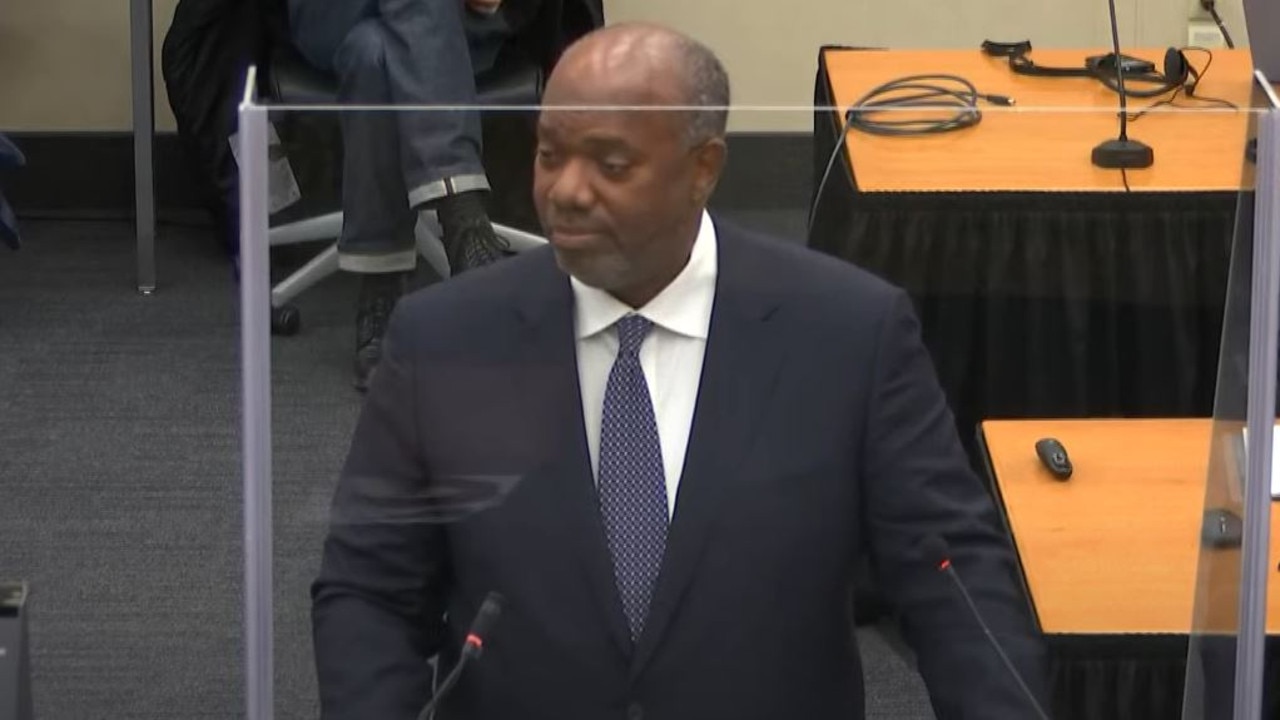
Mr Blackwell took on the defence’s argument that bystanders distracted Chauvin and the other police officers by being “unruly”.
“You’ve gotten to meet them,” he said of the witnesses.
“They came at different ages, different genders, different races, and they all focused together on the one thing. A human being they didn’t know was suffering, and they wanted to intervene to stop the suffering.
“They were in a very difficult spot. You saw them on the stand, in tears. They felt torn between their love for the sanctity of life itself and wanting to intervene, and on the other hand their respect for the authority that the badge represents.
“If those bystanders did not respect this badge, they could have taken the law into their own hands. None of them did that. Because they respected this badge.
“You will hear time and again, oh the crowd was getting louder, getting agitated. We can’t see, somehow, what it is they’re getting upset about? The fact that a man is literally losing his life in front of them and there’s nothing they can do.”
He dismissed the idea that Mr Floyd died due to a drug overdose.
“Mr Floyd does not fit the description of anybody who dies from a fentanyl overdose,” said the prosecutor.
“It does not look like somebody who’s saying, ‘I can’t breathe.’ That’s not what happens when somebody is dying from a fentanyl overdose. They are completely non-responsive.”
He said only a “minuscule amount” of meth had been found in Mr Floyd’s blood.
Mr Blackwell finished with a reference to the defence’s claim that Mr Floyd’s enlarged heart played a role.
“You were told that Mr Floyd died because his heart was too big. And after hearing all the evidence and seeing all the evidence, you know the truth,” he said.
“The reason George Floyd is dead is because Mr Chauvin’s heart was too small.”




